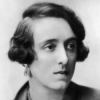Vita Sackville-West

Vita Sackville-West
Victoria Mary Sackville-West, Lady Nicolson, CH, usually known as Vita Sackville-West, was an English poet, novelist, and garden designer. A successful and prolific novelist, poet, and journalist during her lifetime—she was twice awarded the Hawthornden Prize for Imaginative Literature: in 1927 for her pastoral epic, The Land, and in 1933 for her Collected Poems—today she is chiefly remembered for the celebrated garden at Sissinghurst she created with her diplomat husband, Sir Harold Nicolson. She is also remembered as the inspiration for...
NationalityEnglish
ProfessionNovelist
Date of Birth9 March 1892
My garden all is overblown with roses,/ My spirit all is overblown with rhyme,
Every garden-maker should be an artist along his own lines. That is the only possible way to create a garden, irrespective of size or wealth.
There is always something else to do. A gardener should have nine times as many lives as a cat.
Still, no gardener would be a gardener if he did not live in hope.
But you, oh gardener, poet that you be / Though unaware, now use your seeds like words / And make them lilt with color nicely flung ...
The farmer and the gardener are both busy, the gardener perhaps the more excitable of the two, for he is more of the amateur, concerned with the creation of beauty rather than with the providing of food. Gardening is a luxury occupation; an ornament, not a necessity, of life.
Successful gardening is not necessarily a question of wealth, it is a question of love, taste, and knowledge.
The more one gardens, the more one learns; And the more one learns, the more one realizes how little one knows.
The most noteworthy thing about gardeners is that they are always optimistic, always enterprising, and never satisfied. They always look forward to doing something better than they have ever done before.
Women, like men, ought to have their youth so glutted with freedom they hate the very idea of freedom.
Nothing shows up the difference between the things said or read, so much as the daily experience of it.
It is necessary to write, if the days are not to slip emptily by. How else, indeed, to clap the net over the butterfly of the moment?
I suppose the pleasure of the country life lies really in the eternally renewed evidences of the determination to live. That is a truism when said, but anything but a truism when daily observed. Nothing shows up the difference between the thing said or read, so much as the daily experience of it.
Growth is exciting; growth is dynamic and alarming.